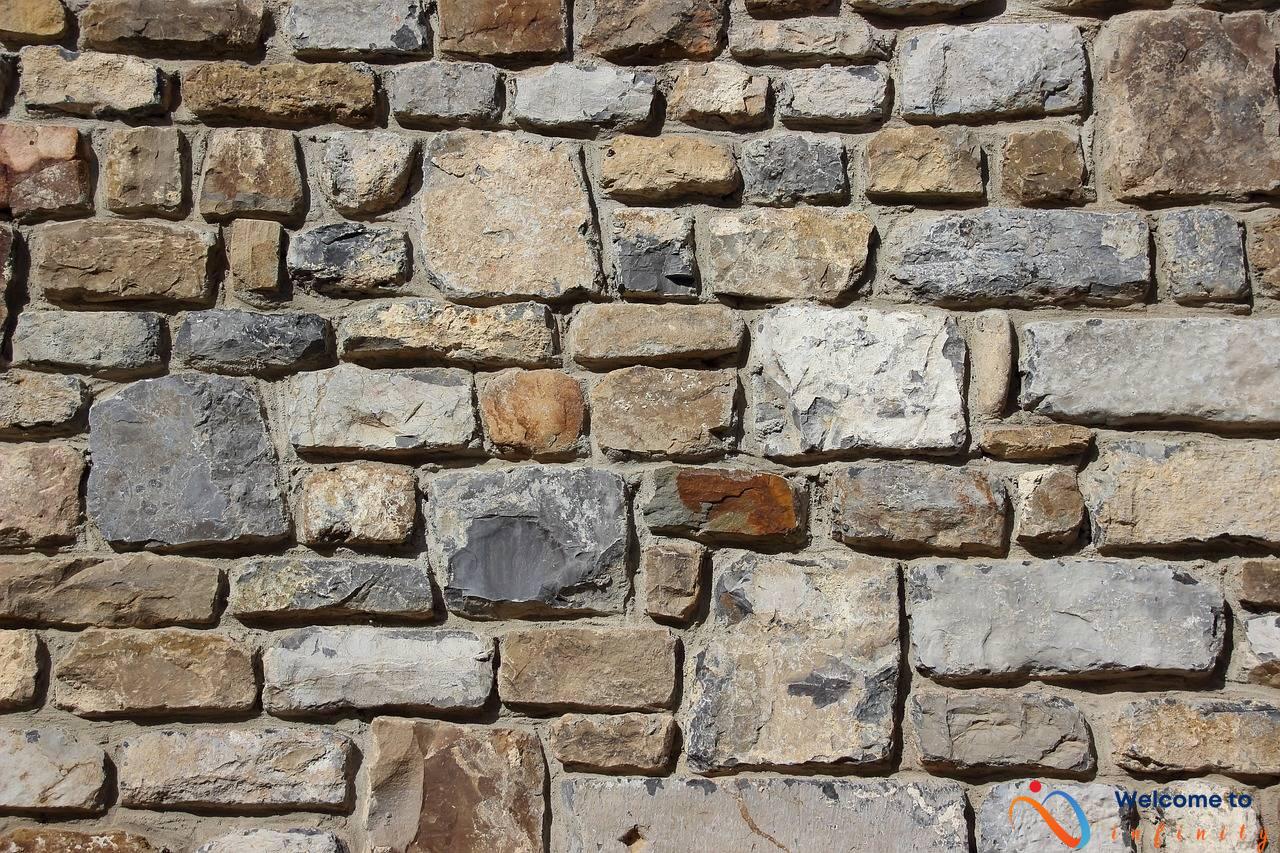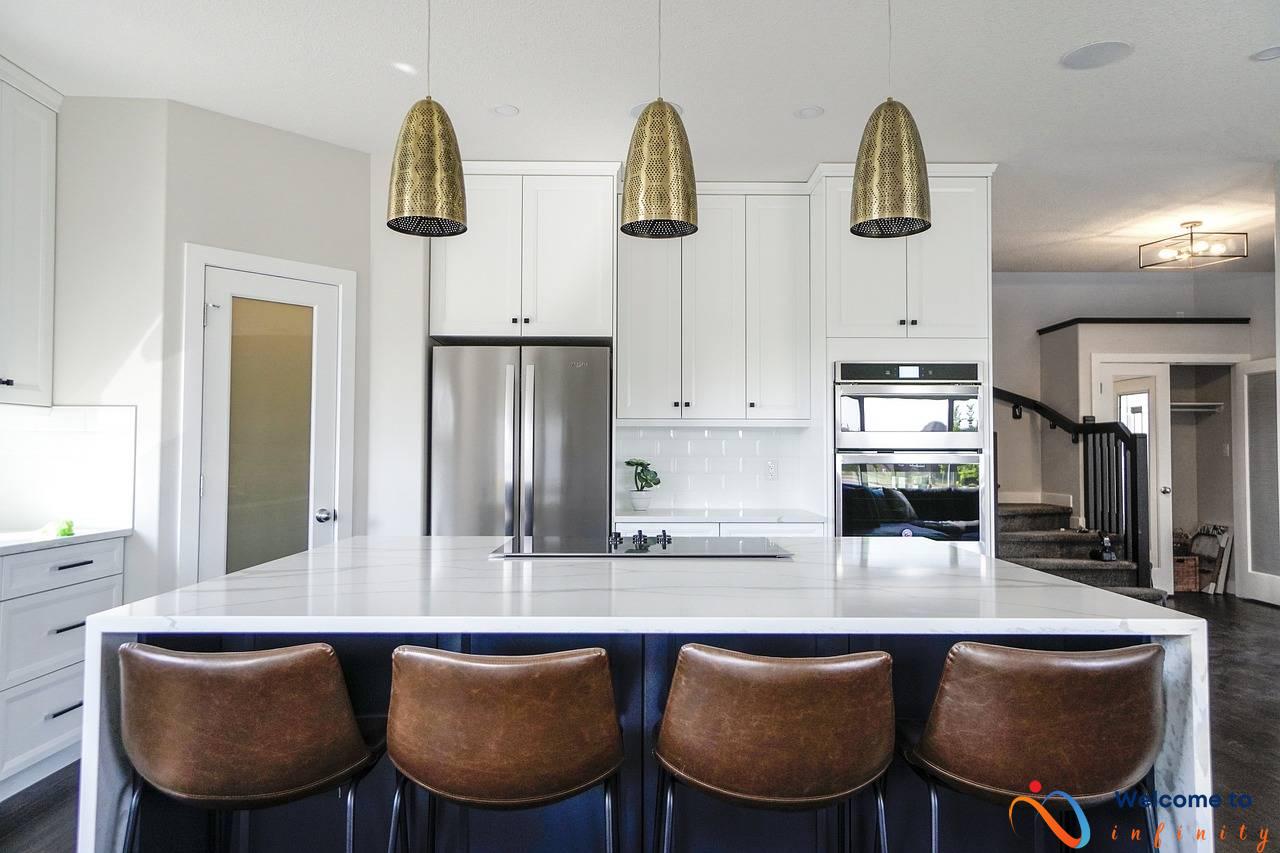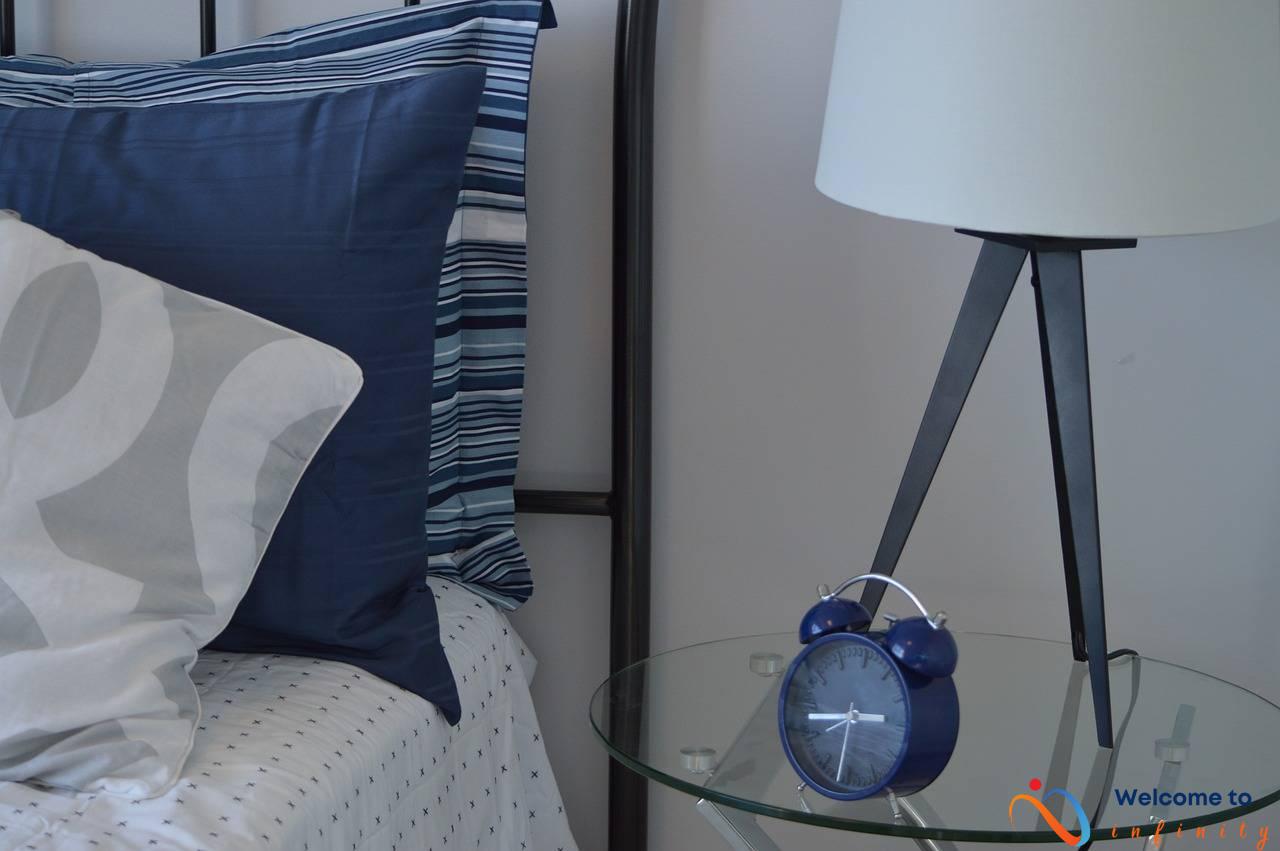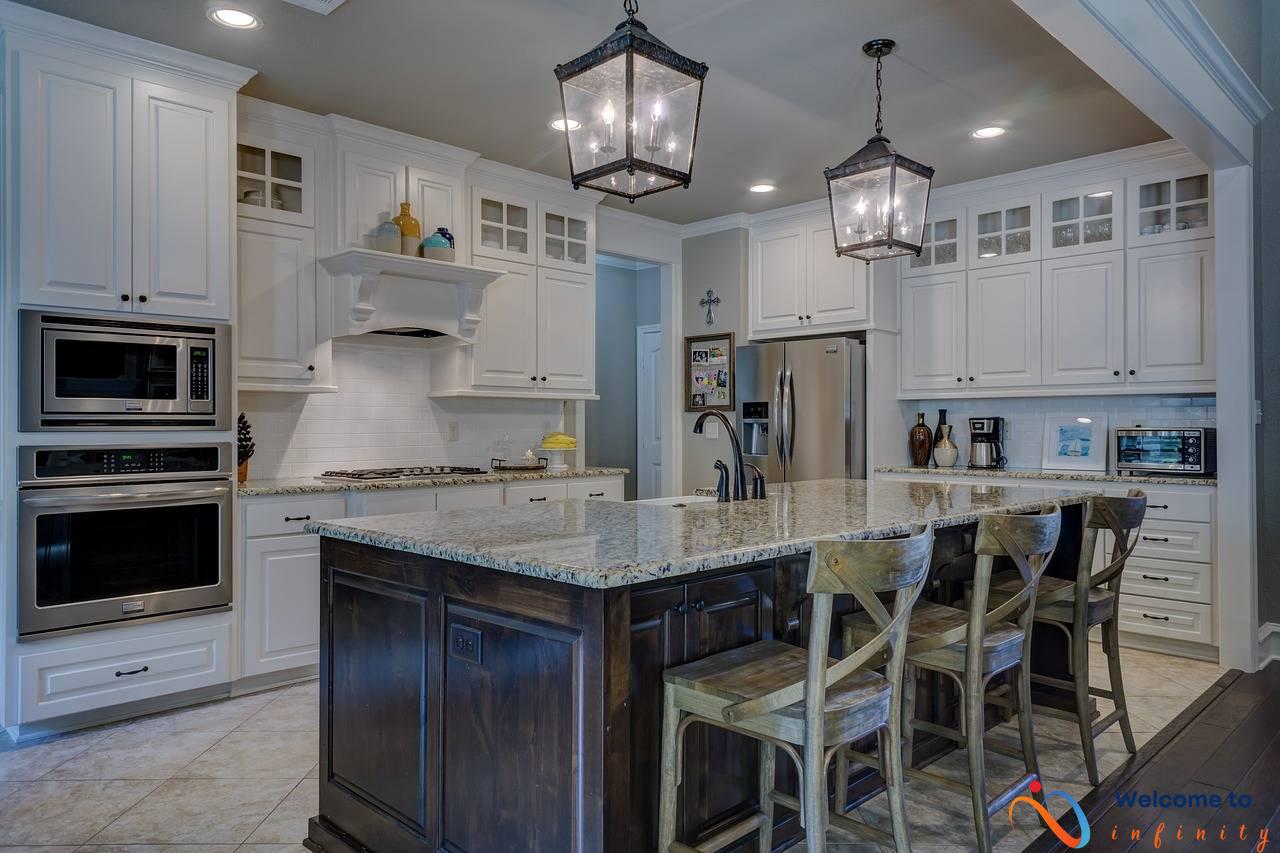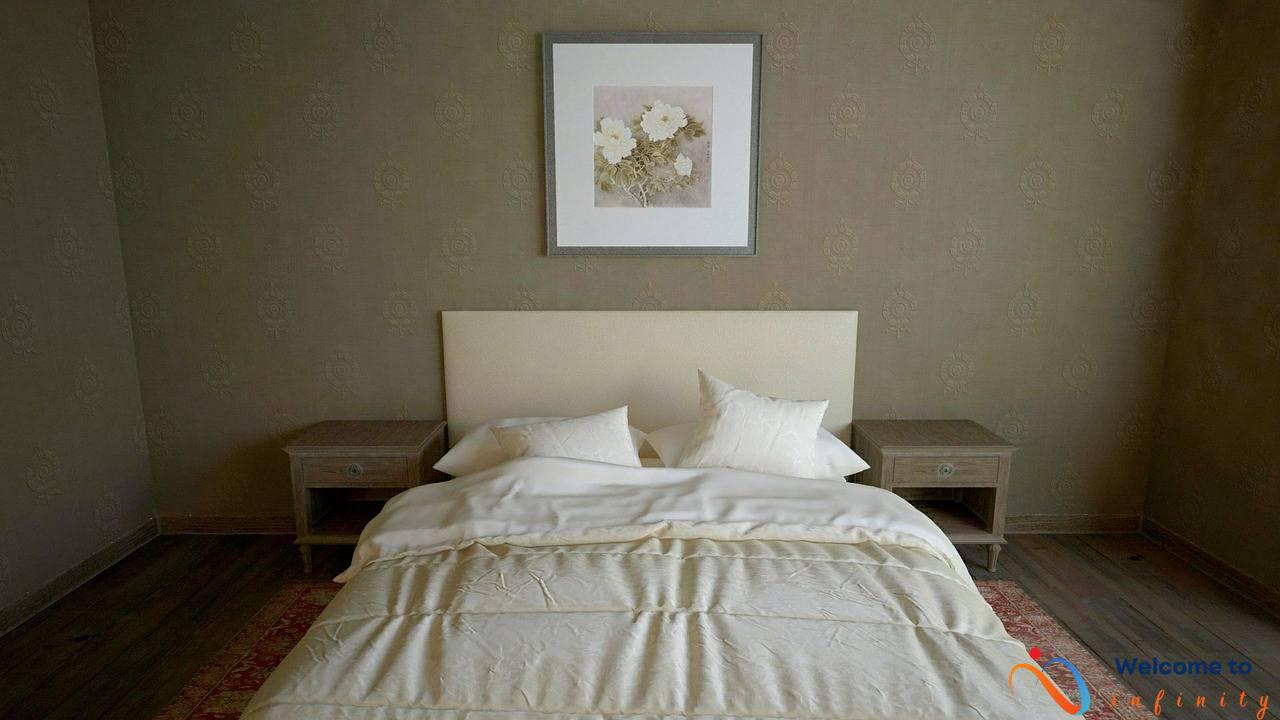The Power of Plants: Adding Greenery to Your Home for a Luxe Look
Welcome to the world of indoor plants! Incorporating plants into your home decor can completely transform your space and bring a touch of nature indoors. Not only do plants make your home feel fresher, but they also offer a myriad of benefits for your mental and physical well-being. In this article, we'll explore the reasons why you should consider adding plants to your home and the different ways you can incorporate them for a luxe look.
One of the main advantages of indoor plants is their ability to purify the air in your home. Plants absorb harmful toxins and pollutants, thereby improving the air quality and making it healthier for you to breathe. In addition, studies have shown that having plants in your home can improve your mood, productivity, and concentration levels. They also reduce stress and anxiety, making your home a more relaxing and calm environment.
When it comes to choosing the right plants for your home, there are a variety of options to consider. If you have a busy lifestyle, you may prefer low-maintenance plants that require little attention, such as succulents and cacti. For those who want to make a statement, large tropical plants like fiddle leaf fig trees and monstera are a popular choice. And if you have limited natural light, there are several plants that thrive in low-light conditions, including snake plants, pothos, and ZZ plants.
- Placement and Styling Tips:
When it comes to styling your plants, there are several ways to incorporate them into your decor. You can place them on shelves, on top of your dresser, or even hang them from the ceiling. Mixing different sizes and types of plants can create a layered and textured look that adds depth to your space. Adding planters in different colors and materials can also complement your interior design style and add sophistication to your space.
Caring for your indoor plants is essential to keeping them healthy and vibrant. Make sure you research how much water and sunlight your plants need and follow their care instructions diligently. With the right care, your plants can thrive for years to come. And for those who love DIY projects, there are several fun and easy ideas for creating your own planters and other decor pieces.
Incorporating plants into your home allows you to embrace nature and bring a sense of peace and tranquility to your living space. When used correctly, plants can completely transform your home and create a green oasis that you'll love spending time in.
Benefits of Indoor Plants
Did you know that not only do indoor plants add style and beauty to your home decor, but they also provide a range of health benefits? Adding plants to your living space can help to improve the air quality in your home by filtering out toxins such as formaldehyde and benzene. As a result, this promotes better respiratory health and reduces the risk of illnesses such as allergies and asthma.
In addition to this, indoor plants have been shown to increase productivity and concentration levels by up to 15%. The greenery can also help to reduce stress, boost mood, and improve mental health. Having plants in your home can create a calming and relaxing environment, perfect for unwinding after a busy day.
Not only are indoor plants beneficial for your health, but they also provide an aesthetically pleasing touch to your home decor. They come in various shapes, sizes, and colors, making it easy to incorporate them into any style or theme. From succulents to snake plants, there is a wide variety of low-maintenance plants that can survive in different lighting conditions, making them perfect for those who are new to indoor gardening.
- Improve air quality by filtering out toxins
- Boost productivity and concentration
- Reduce stress and improve mental health
- Add style and beauty to your home decor
- Low-maintenance options available
Don't let the benefits of indoor plants go unnoticed! Adding greenery to your home decor is not only pleasing to the eye, but it also has numerous health benefits that can improve your overall well-being. So, why not bring a touch of nature indoors and start reaping the benefits of indoor plants today?
Choosing the Right Plants
Choosing the right indoor plants can be overwhelming, especially for beginners. Understanding the different types of plants and their unique needs is crucial in ensuring that they thrive in your home. Before purchasing any plant, consider the lighting conditions and the amount of maintenance required.
Low-maintenance options include snake plants, pothos, and spider plants, which require minimal watering and can survive in a variety of lighting conditions. For those who want to add a touch of color, consider the peace lily, which blooms with white flowers and prefers low to medium light. Other popular choices include the rubber tree, which can grow quite tall and thrives in bright light, and the ZZ plant, which has glossy leaves and can tolerate neglect.
For those with specific lighting conditions, consider the following options:
| Low Light | Medium Light | Bright Light |
|---|---|---|
| Snake Plant | Spider Plant | Rubber Tree |
| Philodendron | Peace Lily | Fiddle Leaf Fig |
| ZZ Plant | Pothos | Snake Plant (Sansevieria trifasciata ‘Laurentii') |
When choosing plants, make sure to take into account the amount of care required. Some plants, such as fiddle leaf figs and orchids, require more attention and specific conditions to thrive. It's important to research the needs of each plant before bringing them into your home.
Consider creating a mix of low-maintenance and high-maintenance plants to add variety to your indoor garden. Don't be afraid to try different options and experiment with different types of plants to find what works best for your space.
Placement and Styling Tips
When it comes to incorporating plants into your home decor, placement and styling are key factors in achieving a cohesive and luxe look. Here are some expert tips on how to do it:
- Choose plants that complement your interior design style. For example, if your decor is minimalist, opt for simple and sleek planters with clean lines.
- Consider the lighting conditions of each room when selecting plants. If a room has low light, choose plants that thrive in shade or artificial light, such as snake plants or ZZ plants.
- Group plants together in clusters to create a striking display. This works particularly well with plants of varying heights and textures.
- Use hanging planters to add visual interest to a room and free up floor space. These work well in rooms with high ceilings or limited floor space.
- Mix and match different types of plants for a dynamic and varied look. You can also incorporate non-plant elements such as shells or crystals to further elevate the look.
By following these tips, you can create an indoor garden that truly enhances your living space and brings the beauty of nature indoors.
Accessorizing with Planters
Accessorizing with Planters
When it comes to adding plants to your home, choosing the right planters is just as important as selecting the perfect plant. The right planters can complement your interior design style and elevate your space to the next level of sophistication.
To choose the perfect planters, consider the style of your decor. If you have a modern or minimalist space, opt for sleek, metallic or concrete planters for a sleek and contemporary look. For a more bohemian or eclectic style, choose natural materials like woven baskets or hand-painted clay pots.
Another important factor to consider is the size of your plant and the size of the planter. A general rule of thumb is to choose a planter that is one to two inches larger in diameter than the plant's current container. This allows roots to grow and expand, providing the plant with room to thrive.
For those who love to DIY, creating your own planters can be a fun and rewarding project. Upcycling old items like teapots, vintage tins or even boots can add a unique touch to your home decor.
No matter which planters you choose, remember to place them strategically throughout your space. Grouping plants of varying sizes and heights together can create interest and dimension in a room. Don't be afraid to experiment with different arrangements and styles until you find the perfect look for your home.
Caring for Your Indoor Plants
One of the benefits of indoor plants is that they require minimal maintenance, but they do require some care to stay healthy and vibrant. To ensure your indoor plants thrive, follow these tips:
1. Watering: Most indoor plants require watering once a week, but the amount of water and frequency may vary depending on the plant species, pot size, and lighting conditions. Check the soil's moisture level before watering, and only water if it feels dry to the touch. Overwatering can cause root rot and eventually kill your plants.
2. Lighting: Place your plants in areas that receive the right amount of light. Some plants prefer bright, indirect light, while others can tolerate low-light conditions. Observe how your plants respond to their location, and adjust accordingly.
3. Humidity: Indoor environments can be dry, which can be a challenge for some plants that require high humidity. You can increase humidity by misting your plants regularly, grouping them together, or using a humidifier.
4. Fertilizing: Indoor plants need nutrients to grow, and you can provide them with a balanced fertilizer every 2-3 months during the growing season. Be sure to dilute the fertilizer before application, and follow the manufacturer's instructions.
5. Pruning: Regular pruning of dead or yellowing leaves can help your plants grow stronger and healthier. Additionally, pruning can encourage bushier growth and prevent legginess.
By following these tips, your indoor plants can thrive and bring you joy for years to come. Remember, each plant is unique and may have specific care requirements, so be sure to research the needs of your specific plants.
DIY Plant Projects
Are you ready to get creative with your indoor plants? DIY plant projects are a fantastic way to personalize your decor and add a touch of personality to your space. Here are some easy and fun DIY projects to try:
- Create a terrarium: Terrariums are compact, low-maintenance gardens that can be designed in a variety of ways. All you need is a glass container, some soil, rocks, and of course, plants! Consider adding in a few decorative items, like figurines or seashells, to make your terrarium unique.
- Make a macrame plant hanger: Macrame is a trendy way to show off your indoor plants while also adding a bohemian touch to your decor. With just a few knots, you can create a stylish hanger for your plants that will brighten up any room.
- Repurpose old containers: Don't toss out those old tin cans or glass jars – turn them into planters! Clean them out, add some soil and a small plant, and voila – you have a charming new planter that's both eco-friendly and chic.
- Paint your planters: Plain terra cotta pots are fine, but why settle for plain when you can add a pop of color? Grab some paint and a brush and let your creativity flow. You can go for a solid color or get creative with patterns and designs.
These are just a few of the many DIY plant projects out there. With a little bit of imagination and some basic supplies, you can create unique and beautiful plant displays that will elevate your home decor and make your plants shine.
Bringing the Outdoors In
Have you ever felt drawn to nature, but find it difficult to take time out of your busy schedule to go outdoors? Incorporating plants into your home decor may be the perfect solution to your dilemma. Adding greenery to your living space not only allows you to bring a touch of nature indoors but also offers numerous benefits.
Plants have been known to create a calming, peaceful atmosphere in a room while also reducing stress levels. They also improve air quality by removing harmful toxins and increasing humidity levels, resulting in a healthier living environment. In addition, studies have shown that having plants in your home can boost productivity, creativity, and cognitive function, making it a great addition to your workspace.
When choosing indoor plants, it's essential to consider lighting and maintenance requirements. Some popular low-maintenance options include the snake plant, spider plant, and pothos. If you have low light conditions, consider a ZZ plant or a peace lily, while a South-facing window is ideal for succulents and cacti.
Once you have chosen your plants, it's essential to style them correctly to complement your decor. You can place them in groups or arrange them individually, either on a shelf or in a stylish planter. Hanging plants can also add a fun element to your decor and create a natural focal point.
Overall, incorporating plants into your home decor provides numerous benefits and is an excellent way to bring a little bit of the outdoors inside. So why not try it out and see how it can transform your living space into a peaceful and calming oasis?
Creating a Green Oasis
Are you looking to create a calming and refreshing environment in your home? Look no further than incorporating plants into your decor. By strategically placing plants throughout your living space, you can create a green oasis that promotes relaxation and tranquility.
- First, consider the lighting in different areas of your home. Choose plants that are well-suited to the amount of light they will receive in each area. For example, succulents are a great choice for bright, sunny spaces, while ferns thrive in shadier areas.
- Next, choose a variety of plant sizes and shapes to create visual interest and texture in your space. Consider layering plants on different surfaces, such as shelves and tables, to add dimension to your decor.
- You can also use planters to add a touch of style and sophistication to your space. Choose planters that complement your existing decor and add a pop of color or texture to your room.
- To create a truly lush green oasis, don't be afraid to incorporate plants into every area of your home, from the bathroom to the bedroom. By incorporating plants into your living space, you can enjoy the numerous benefits of improved air quality, reduced stress, and increased relaxation.
Transform your home into a green oasis with the addition of some well-placed plants. With a little creativity and attention to detail, you can create a calming and refreshing environment that promotes health and wellness.

